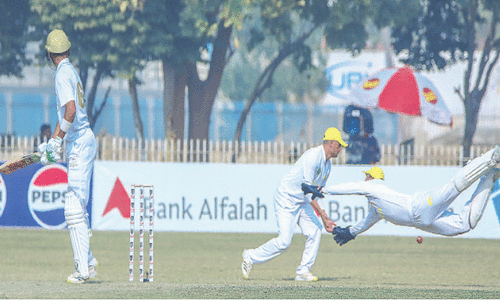DHAKA: With a rush of rain cooling the steamy night air, Nazima Akter, 33, hurried through the muddy, narrow alleyways of one of Dhaka’s many slums. Without knocking, Akter, a trade union activist, strutted straight into the cramped home of a sewing machine operator.
The worker, a young mother of three who went by the name Nazma, had just returned from a long day at the factory, her lunch pail empty and swinging from her arm. She collapsed onto a sagging mattress, telling Akter about the poor sanitary conditions at her garment factory, one of thousands in Bangladesh’s biggest industry, and the need for an increase in wages.
Nearby, Nazma’s husband, a gaunt rickshaw driver wearing a flowing saronglike loongi and chewed-up flip-flops, paced in front of the women, waiting for his wife to start cooking his supper. But he quickly got reprimanded.
“Cook dinner for your wife,” commanded Akter, president of Bangladesh’s United Garment Workers Federation. “Your wife is working for the family from sunrise to sunset. It’s time to thank her.”
Looking defeated and slightly nervous, he quietly boiled water for rice and tea as the women continued their informal meeting.
With stern black eyes, a puff of mocha-colored curly hair and a self-described “low tolerance for fools”, Akter is not afraid of confrontation. And these days, there is plenty of confrontation in Bangladesh.
With prices for food and other basic goods skyrocketing here and around the world, Akter’s role as a champion of labour is more important than ever. On behalf of workers, she campaigns for wage increases to make sure that staples such as rice and oil are affordable. In meetings with manufacturers, she presses for rice subsidies so that workers and their families don’t go hungry. Her efforts have paid off, with several factory owners agreeing to demands.
While Bangladesh has reduced poverty in recent years, the rise in global food prices is threatening to set the country back again. Inflation has caused the purchasing power of the working poor to decrease by 36.7 per cent since January 2007, pushing another 8.5 per cent of the population below the poverty line, according to the Center for Policy Dialogue, a think-tank in Dhaka, the nation’s capital. About half of Bangladesh’s 150 million people are below the poverty line, according to government data.
“It’s not humane the way things are going, and someone has to say it,” Akter said recently, as she sat cross-legged and spoke to a group of female factory workers.
Over the last five years, an estimated 2 million women have found employment in Bangladesh’s thriving garment industry, altering family power dynamics and giving women a new sense of economic freedom.
Akter started working in a clothing factory as a child when her father, a vegetable vendor, fell ill. The family of seven needed the income, she said, so she dropped out of the fourth grade. Her mother was already working at a nearby factory as a buttonmaker.
At age 11, Akter frequently drifted off to sleep during the 12-hour workdays, spent in front of a sewing machine. She was always thirsty, she said, because workers were allowed water breaks only twice a day.
“I still remember that cotton feeling in my mouth and just being so tired,” she said, recalling how she once looked out the factory window and noticed wealthy children of her age dressed in school uniforms on their way to classes. “After that, it was something in me that snapped. I grew very angry.”
After Akter held a successful protest demanding clean drinking water at a factory, union organisers took notice. She was only 15, but they liked her feisty personality and knew she was popular with other female workers. She told the union organisers she would help them but only if they paid for her to go to school part time.
“It was my dream to be a teacher,” she said, adding that she has always loved talking, especially in front of an audience. “But I never thought I would end up leading a union.”
Over the years, she has fought for maternity leave, medical benefits, and drinking and bathroom breaks for workers. She also led the charge to stop child labour in the factories, often naming and shaming those companies that hired those younger than 18.
“What’s amazing is that Nazima Akter made it work. There’s far less child labour now,” said Ayesha Khanam, president of the Bangladesh Women’s Council, a civil society group. “Nazima’s message is that women don’t have to have an appeasement policy toward men or their bosses. They can fight.”—Dawn/ The LAT-WP News Service (c) The Washington Post














































Dear visitor, the comments section is undergoing an overhaul and will return soon.